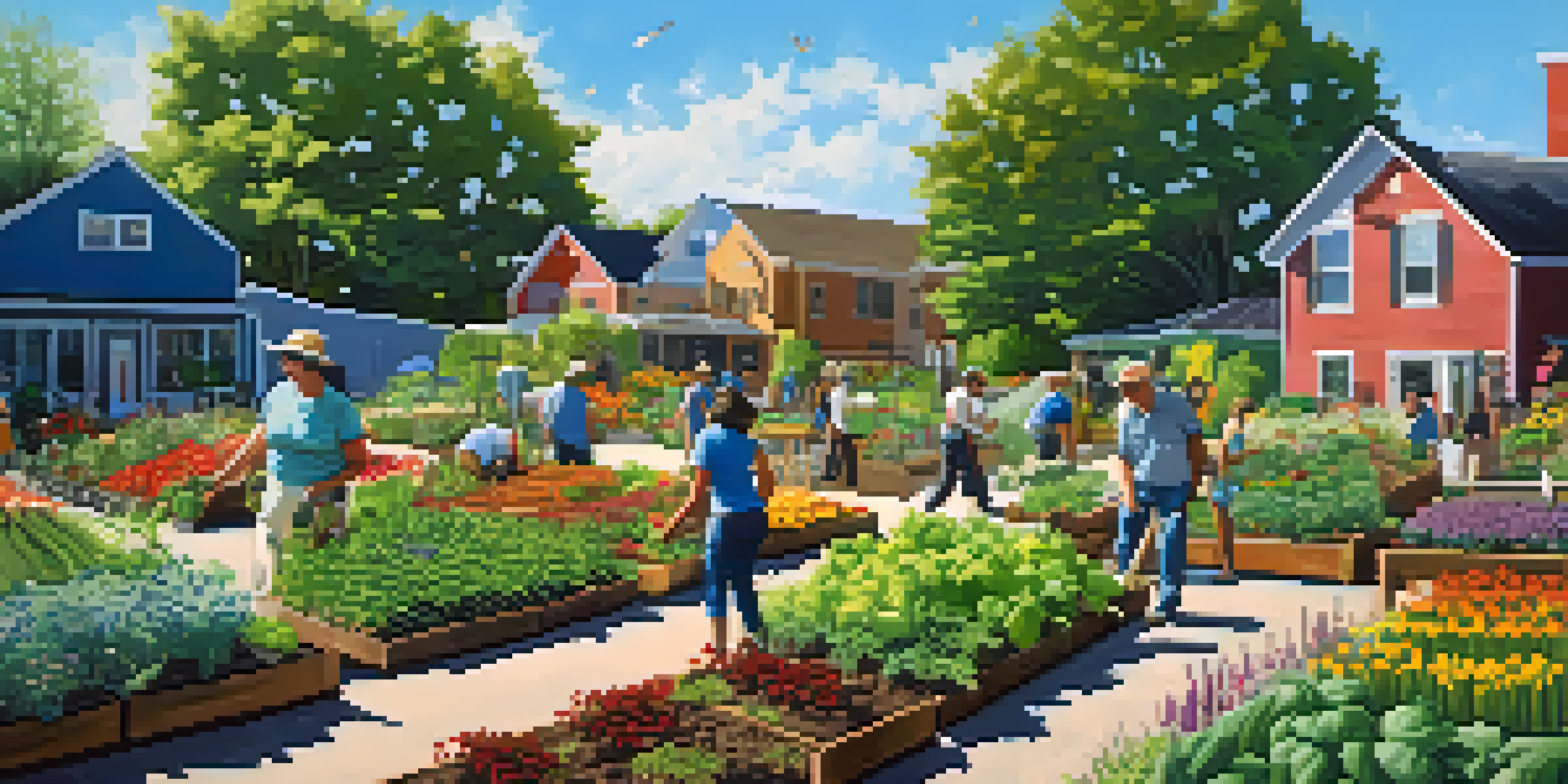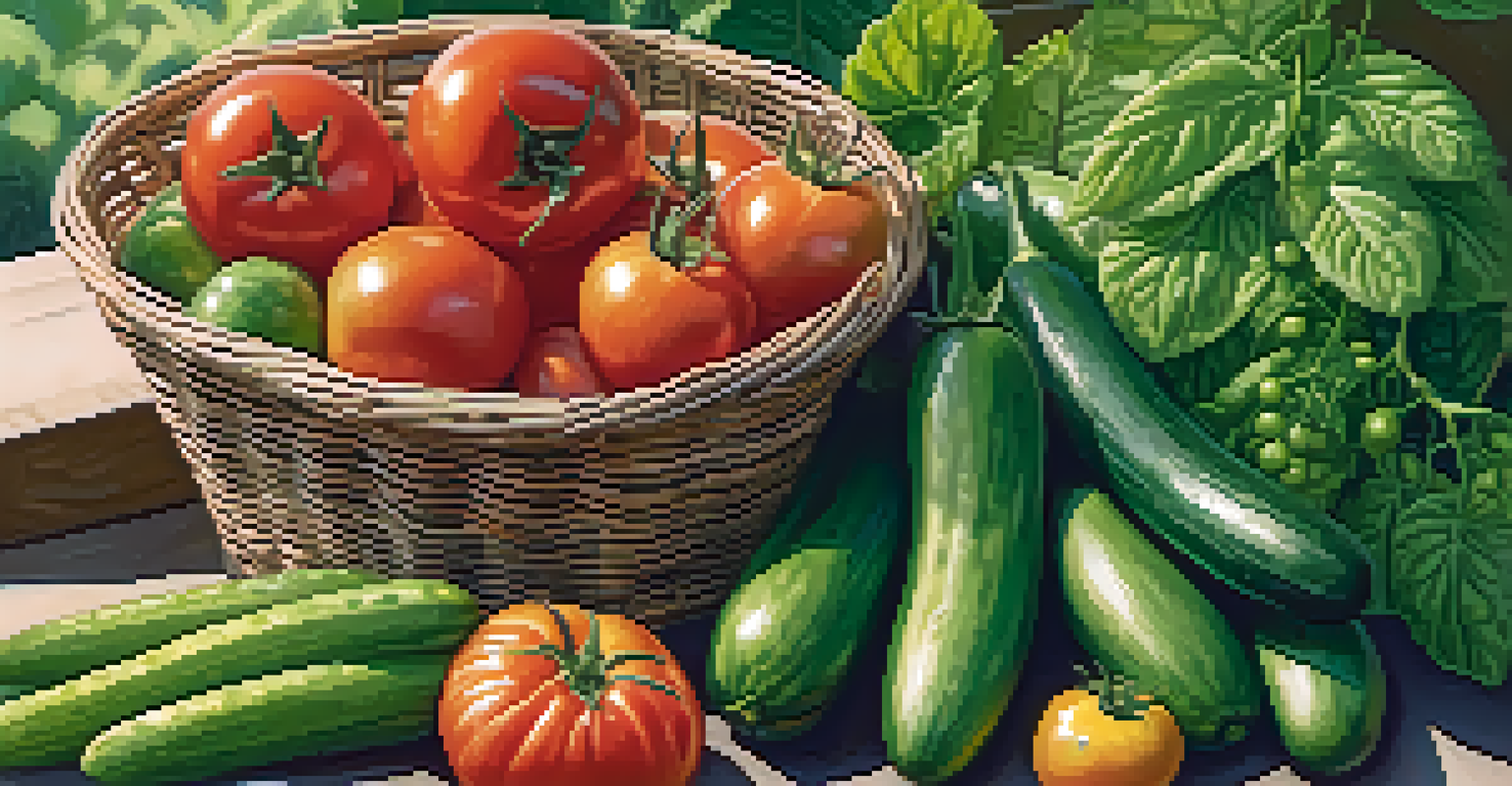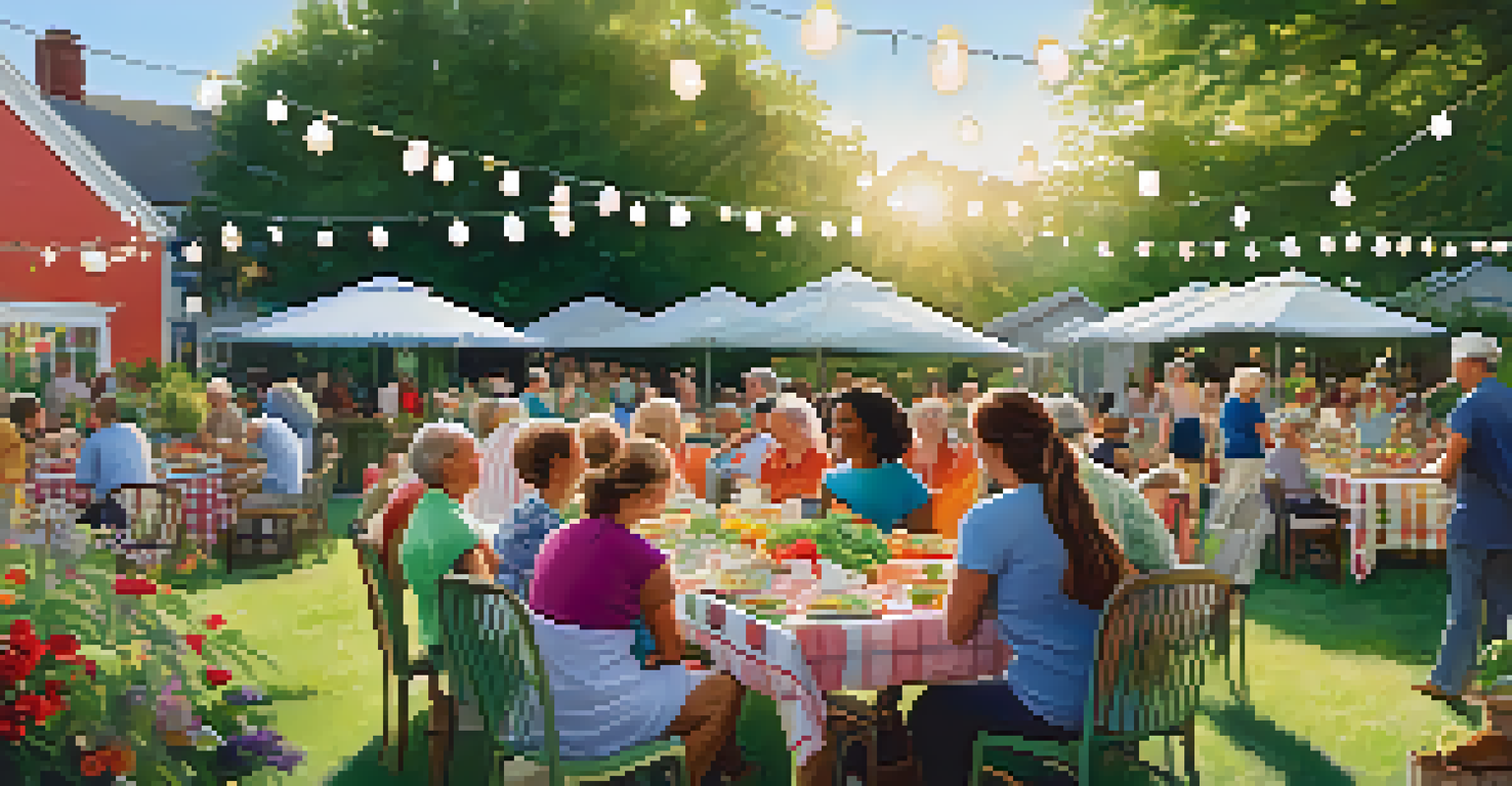The Role of Community Gardens in Urban Charlotte Neighborhoods

Introduction to Community Gardens in Charlotte
Community gardens are vibrant spaces where residents come together to grow food, foster relationships, and enhance their neighborhoods. In urban Charlotte, these gardens have become essential hubs, creating green oases amid concrete landscapes. They serve not just as places to cultivate vegetables but also as community gathering spots that promote social cohesion.
The best way to predict the future is to create it.
These gardens are popping up across various neighborhoods in Charlotte, from South End to Plaza Midwood, transforming vacant lots and underutilized spaces into thriving ecosystems. Each garden tells a story, reflecting the culture and diversity of the area it's in. This grassroots movement encourages residents to take ownership of their surroundings, instilling a sense of pride and responsibility.
Moreover, community gardens contribute significantly to local sustainability efforts. By growing food locally, they reduce the carbon footprint associated with transporting produce over long distances. This shift not only supports a healthier lifestyle but also fosters a deeper connection between individuals and their food sources.
Benefits of Community Gardens for Urban Residents
One of the most immediate benefits of community gardens is the access they provide to fresh produce. Many urban areas, including parts of Charlotte, face food deserts where healthy food options are scarce. Community gardens help bridge this gap, allowing residents to grow their own fruits and vegetables, promoting better nutrition within the community.

In addition to food access, these gardens also offer mental and emotional benefits. Spending time in nature has been shown to reduce stress and anxiety, and tending to plants can be a therapeutic activity. For many, these gardens become a peaceful retreat, a place to escape the hustle and bustle of city life.
Community Gardens Enhance Urban Life
Community gardens in Charlotte serve as vital hubs for fresh produce, social interaction, and environmental sustainability.
Furthermore, community gardens create opportunities for learning and skill development. Residents can share gardening tips, cooking classes, and even workshops on sustainability practices. This exchange of knowledge fosters a sense of community and encourages lifelong learning among participants.
Fostering Community Engagement Through Gardening
Community gardens are more than just a place to grow food; they serve as a catalyst for community engagement. Neighbors come together to plan, plant, and maintain these gardens, nurturing relationships that might not have otherwise developed. This collaboration cultivates a spirit of teamwork and camaraderie among residents.
In every community, there is work to be done. In every nation, there are wounds to heal. In every heart, there is the power to do it.
Events such as garden parties, harvest festivals, and educational workshops transform these spaces into lively venues for social interaction. Such gatherings not only build community bonds but also allow residents to showcase their culture and traditions through food and gardening practices. It’s a wonderful way to celebrate diversity within urban neighborhoods.
Moreover, community gardens often become focal points for local activism. Residents can unite to address issues such as food insecurity and environmental sustainability, using their gardens as platforms for change. This grassroots approach empowers individuals and fosters a sense of agency within the community.
Environmental Impact of Urban Community Gardens
Community gardens play a crucial role in enhancing urban biodiversity. They create habitats for various species, including pollinators like bees and butterflies, which are essential for healthy ecosystems. By incorporating native plants into these gardens, residents can support local wildlife while beautifying their neighborhoods.
The presence of greenery in urban areas also helps to mitigate the urban heat island effect. These gardens cool the environment, improve air quality, and reduce stormwater runoff by allowing rainwater to permeate the soil. This natural approach to managing environmental challenges contributes to a more sustainable urban landscape.
Challenges Impacting Community Growth
Despite their benefits, community gardens face hurdles like limited land access, funding scarcity, and varied community engagement.
Additionally, community gardens often promote composting and other eco-friendly practices. Residents learn to recycle organic waste, which not only enhances soil health but also reduces the amount of waste sent to landfills. This collective shift towards sustainable practices fosters a culture of environmental stewardship within the community.
Challenges Facing Community Gardens in Charlotte
While community gardens bring many benefits, they also face several challenges. Limited access to land is a significant hurdle, as urban areas are often densely populated and land prices can be high. Securing leases or permission from landowners can be a lengthy and complicated process, slowing down the establishment of new gardens.
Additionally, funding and resources can be scarce. Many community gardens rely on donations, grants, and volunteers to maintain operations. Without consistent financial support, some gardens struggle to thrive, leading to concerns about sustainability and long-term viability.
There are also challenges related to community involvement. While many residents are eager to participate, others may feel disconnected or lack the time to engage. Building a diverse and committed community around a garden requires ongoing outreach and education to ensure everyone feels welcome and involved.
Success Stories: Thriving Community Gardens in Charlotte
Charlotte boasts several successful community gardens that illustrate the positive impact of this movement. For instance, the Charlotte Community Garden Program has made strides in supporting local gardens throughout the city, providing resources and guidance to new and existing projects. These gardens not only yield fresh produce but also serve as models for sustainability and community engagement.
Another example is the Friendship Trays Community Garden, which collaborates with local nonprofits to grow food for those in need. This garden exemplifies how community efforts can address food insecurity while fostering connections between diverse groups. Volunteers come together to cultivate crops that directly benefit their neighbors, illustrating the power of community solidarity.
Future Innovations in Urban Gardening
The future of community gardens in Charlotte looks bright with increasing support and innovative solutions like vertical gardens.
These success stories demonstrate that with dedication and collaboration, community gardens can flourish in urban settings. They serve as beacons of hope, showcasing how collective action can lead to tangible benefits for both individuals and the broader community.
Future of Community Gardens in Urban Charlotte
Looking ahead, the future of community gardens in Charlotte appears promising. As awareness grows about the benefits of local food production and sustainable practices, more residents are likely to get involved. Community organizations and local governments are increasingly recognizing the importance of these green spaces, potentially leading to additional support and resources.
Innovative ideas, such as vertical gardens and rooftop farms, are also gaining traction in urban areas. These creative solutions can help maximize limited space while still providing opportunities for gardening and community engagement. As technology advances, the possibilities for urban farming are expanding, making gardening more accessible to city dwellers.

Ultimately, the continued growth of community gardens in Charlotte will depend on the commitment of residents and stakeholders to work together. By fostering a culture of collaboration and inclusivity, the city can ensure that these gardens remain vibrant and impactful spaces for generations to come.